Your cart is currently empty!
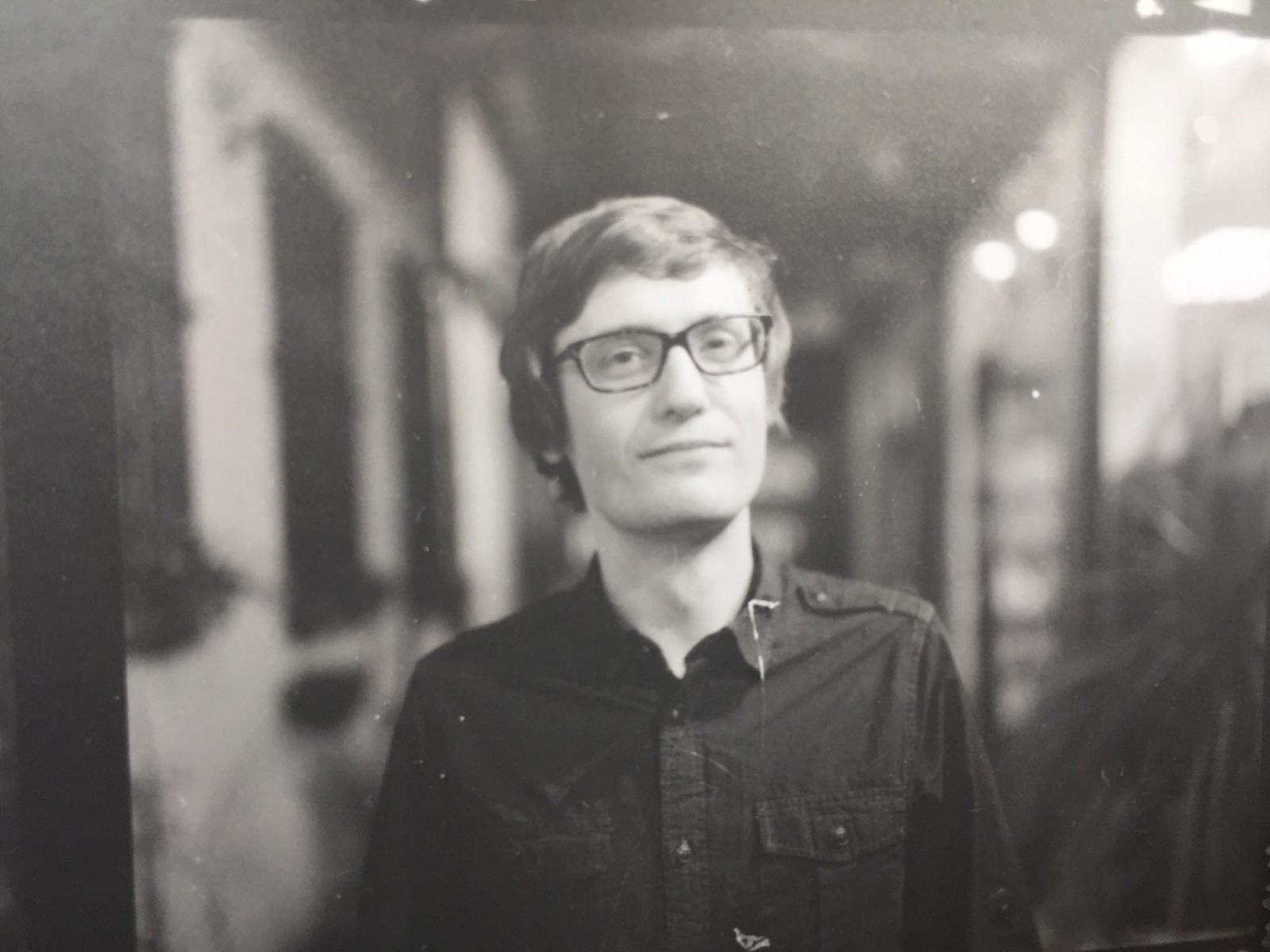
Darren
Simpson
The fact is, I’d spent ten years trying to get published before that email hit my inbox. I’d written several novels before Scavengers – none of which quite made it – and I was so close to giving up.
Darren Simpson
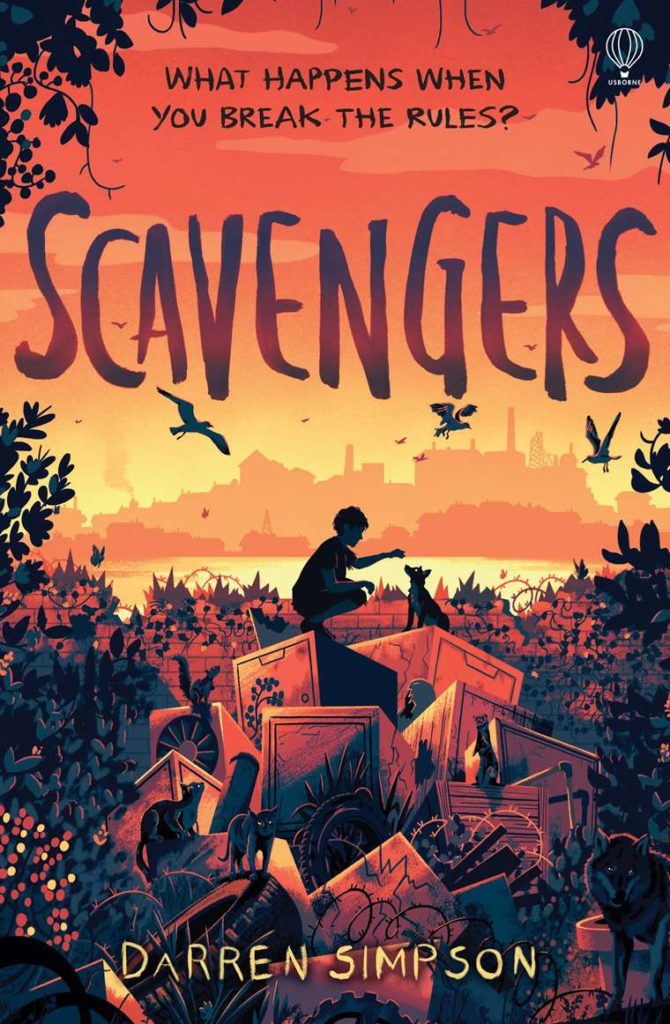
In March 2019, Darren Simpson’s book Scavengers arrived on the scene. It’s an intriguing story that combines a love of adventure, mystery and science fiction. Set in what feels like a dystopian world, a young boy, called Landfill, must live his life in accordance with a set of rules designed to supposedly protect him. He soon realises that there are life-changing consequences to breaking these rules. This book was very well received in the reading community and praised across the board. When I shared this book with my Year 6 Class in December 2019, we couldn’t put it down!
I’d like to welcome Darren Simpson today into our NEW VIP Reading blog. It’s a pleasure to have you with us, Darren.
The pleasure’s all mine!
For those people who haven’t read Scavengers yet, how would you best describe the book?
I often describe Scavengers as a junkyard Jungle Book. It’s a grubby, gritty adventure novel that raises many questions, with the relationship between a feral boy and his cantankerous guardian – who are hiding out in an industrial wasteland overrun by nature – at its heart.
When you were first told that Scavengers would be published by Usborne, how did you feel?
Words can’t describe the moment I read the email from my agent saying Usborne wanted to buy Scavengers. I was honestly shaking with adrenaline for hours, and don’t mind admitting that I wept a little too. I was ecstatic, of course, but the main thing that had me shaking was relief. The fact is, I’d spent ten years trying to get published before that email hit my inbox. I’d written several novels before Scavengers – none of which quite made it – and I was so close to giving up. I still remember telling my wife that Scavengers would be my last shot at getting published. So with that one little email from my agent, all the hard work – all those years of graft and all the faith my loved ones had shown me… It finally paid off.
I heard that your inspiration for Scavengers came from a visit to a rubbish tip. Can you elaborate?
It’s true. While dropping garden waste off at our local recycling centre, I saw some cats fighting over a bit of sandwich a worker had just tossed away. It got me thinking about animals that build habitats in the places we leave our waste, and I was hit by a mental image of a man living with these creatures in a cave of rubbish. That man became a central character, Babagoo.
I started researching people who live in rubbish in real life, and learned about the huge communities of scavengers that live on landfill sites in many developing countries. The children there really moved and inspired me; not just because of their plight, but also because of their dignity. I knew then that Babagoo would be raising a boy in his landscape of trash, and the story just evolved from there.
In the book, we feel the great sense of isolation and desperation from the characters Landfill and Babagoo. What inspired you when creating these characters?
Landfill and Babagoo are indeed very isolated, to the point that they have their own dialect. But while Babagoo is serious and desperate, I hope Landfill’s troubles are balanced by something more irrepressible, childlike and pure. Sure, he has strict rules to follow and Outsiders to fear; but at the same time, he also loves cuddling up to Hinterland’s dogs, chasing its squirrels and splashing in its gully. And this all came from those children living on real-life landfill sites. I was so moved by photos of kids as young as five not only digging through rubbish to survive, but also playing games with the balls they found, helping each other, hanging out and laughing together – all the while surrounded by filth and junk. This said so much to me about childhood and humanity, and I tried to pour that into Landfill’s character.
Babagoo came to me fully formed. I had a clear image in my head of this filthy, bristly, bearded man in a plaid coat and trapper hat, and I always knew he’d be cranky, coarse and perhaps a little damaged. But he also developed a very complex, affectionate streak when Landfill came along. There’s a bit of Oliver Twist’s Fagin to him, I guess – along with some Jethro Tull, believe it or not. I really loved the idea of Babagoo being cultured, wry and puckish beneath all that grimness and grime.
As a father, did having children impact you during the planning stage and writing process for Scavengers?
Massively. My sons are both scamps, and they inspire me every day with their budding perspectives, which are less jaded than mine and often far wiser. Plus it’s fascinating to watch them follow their curiosity and develop their own views on the world.
This all fed into Landfill, of course. But in a wider sense, the relationship between Babagoo and Landfill is an exaggeration of my relationship with my sons – a way to probe the complexities of parenting, particularly in terms of protecting versus smothering.
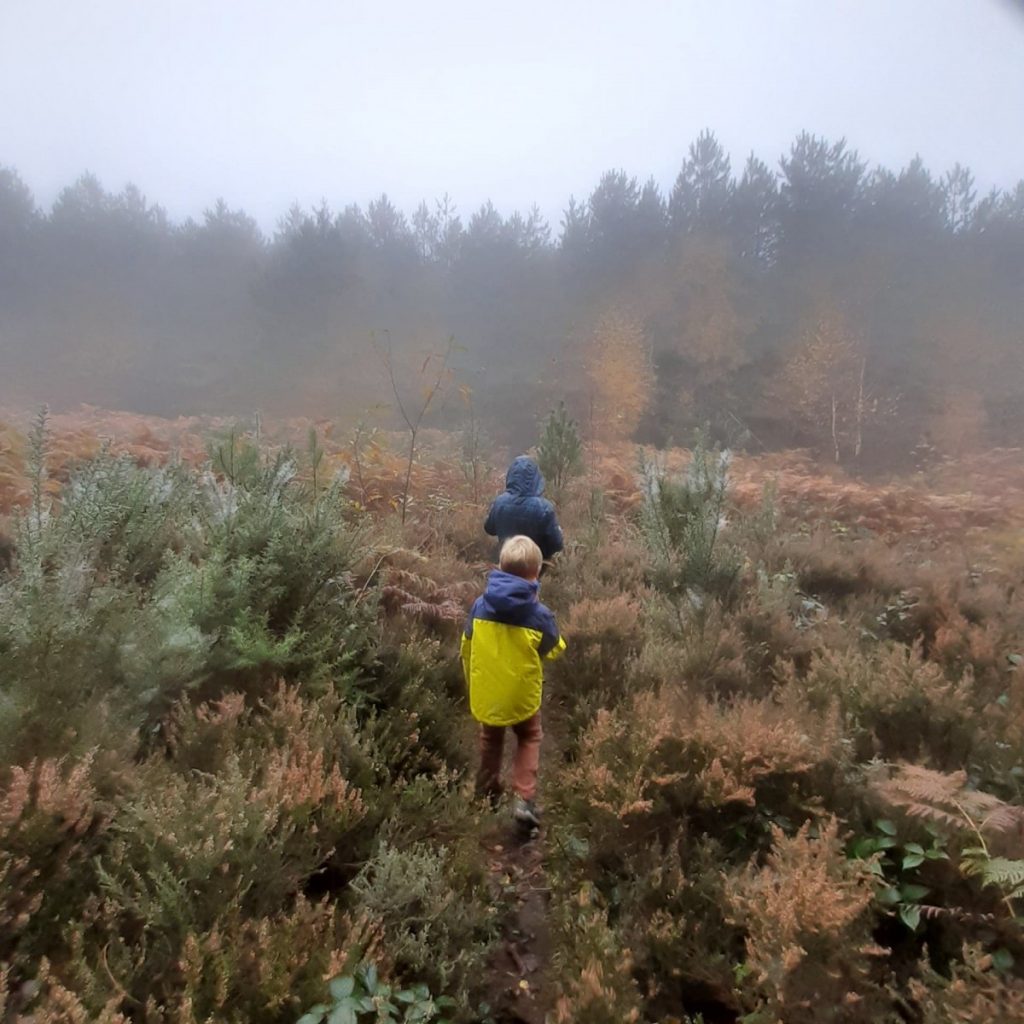
Landfill and Babagoo live according to a set of rules. I’d love to know whether you feel any of these rules are applicable today?
While many of Hinterland’s rules keep Landfill safe, they also nurture fear and stifle curiosity:
Babagoo’s always right. Respect your fear. Never rise above the wall. Believe only Babagoo.
I think these sorts of rules are incredibly applicable today – not in the sense that they should be followed, but in the sense that they should be questioned, and sometimes even ignored. Scavengers is largely a book about challenging the fear, hate and blame stirred up by others, and this is as crucial now as ever.
One of the best features of this book is the mysteries. As a reader, and with my class, we were constantly trying to predict what would happen next. Do you enjoy keeping secrets from the reader and was this your intention?
Questions are excellent engines for narratives. If readers can be made to care about the answers, they’ll keep on reading. In Scavengers, I tried not only to make readers as curious as Landfill about the questions the story raises, but also to keep them on their toes with the occasional twist. It’s certainly a lot of fun to toy with readers’ theories and assumptions, but also very difficult. Clues and red herrings need to be positioned in just the right places, and there’s a tricky balancing act involved; you need to provide a resolution that’s not too easy to see coming, but which also comes together in a satisfying way.
I’ve seen many schools – including my own – reaching out to you to request author visits, and then saying they had a wonderful experience. Have you been surprised by the great reaction to Scavengers?
The reaction to Scavengers has blown my mind. I’m so pleased that it’s resonated with so many readers of all ages. It’s received several accolades that make me feel incredibly privileged, such as being a Guardian Best Book of 2019, or being selected for 2019’s Summer Reading Challenge. It’s also now been shortlisted for the 2020 Northern Ireland Book Award.
I cherish every ounce of kudos, along with the recognition that comes from more unexpected angles. Seeing the Literacy Trust use Scavengers to nurture reading in less privileged schools, for example. Or UNESCO recommending Scavengers as a book that brings the UN’s sustainable development goals to life, and then discovering that a sustainability forum all the way in India has used Scavengers to launch a reading initiative. And what really lifts my heart, of course, is hearing from children about how much they loved the book. That stuff is priceless.
Have I been surprised by all this? I suppose I have, possibly because of my insecurities as a writer (not at all uncommon in authors), and more probably because – when you finally get published – there’s only so much more you dare to wish for.
Since its publication, how has life changed for you?
I don’t have a mansion with a guitar-shaped swimming pool. Nothing like that. But my life has changed in more profound ways. On the practical side of things, I’ve been able to reduce my day job hours, which gives me more time to be an author. The writing momentum this allows me is precious, as I’m a slow writer at times.
On the emotional side, there’s a giddiness now that bubbles constantly at the back of my mind. I mentioned before how close I was to giving up on writing, and to now be in a position where I’m writing for an audience is incredible. Not a day goes by that I don’t feel blessed. And as well as feeling blessed, I feel incredibly driven. Writing for children happened somewhat by accident (Scavengers was originally intended for adults), but I’m so glad things went that way, as getting children into reading has become a cause I’m genuinely passionate about, and I love being part of the children’s fiction community.
It’s recently been reprinted by Oxford University Press. How is this version different?
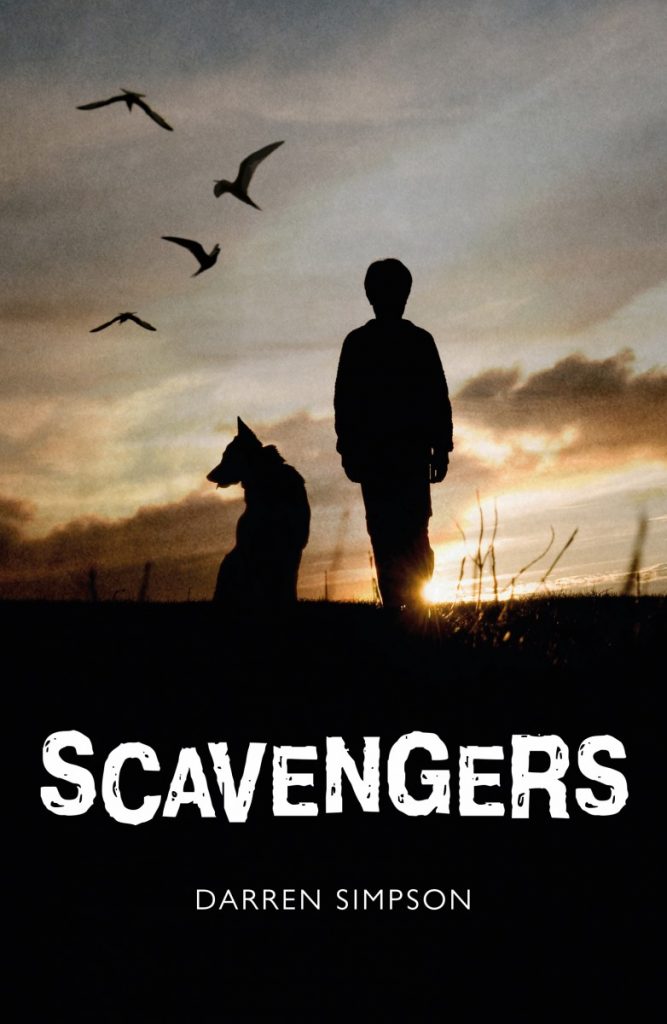
The OUP edition is another of those wonderful things that took me by complete surprise. This summer, Scavengers was added to OUP’s Rollercoasters range: a selection of books aimed at the classroom to keep pupils reading. OUP’s edition of Scavengers has the same story as the original edition but – as well as having a beautiful new cover – features additional classroom materials at the back, including student-friendly notes, special insights, and an exclusive interview with the novel’s baffled but hugely grateful author. On top of that, this edition has a free, downloadable resource pack of teaching and learning materials. It’s honestly such an honour, especially as other Rollercoasters authors include the likes of Anthony McGowan, Geraldine McCaughrean and Malorie Blackman. Unbelievable.
Finally, we are all eager to know when your next book will be out. Without getting into too much trouble, what can you tell us about your next book?
Many people ask whether there’ll be a Scavengers sequel, but I’m afraid there won’t. Scavengers ends very intentionally as it does – though I hope the story might continue a little in readers’ minds.
I’ll say as much as I’m allowed about my next book, though I’m afraid that isn’t much! It’s quite a different novel to Scavengers, in some ways, but also similar in its use of a striking, unusual setting to explore its themes. It’s also on the darker side of middle grade fiction, while still offering plenty of adventure, humour and hope.
Here’s something my wonderful editor, Stephanie King, shared on Twitter about it:
“I just finished the final draft of Darren Simpson’s second book, coming out next year. Honestly, it is unlike anything I have ever read. Original, magical, mesmerising and chilling, prepare to be wow-ed.”
So yes, all being well, it’ll be out next summer!
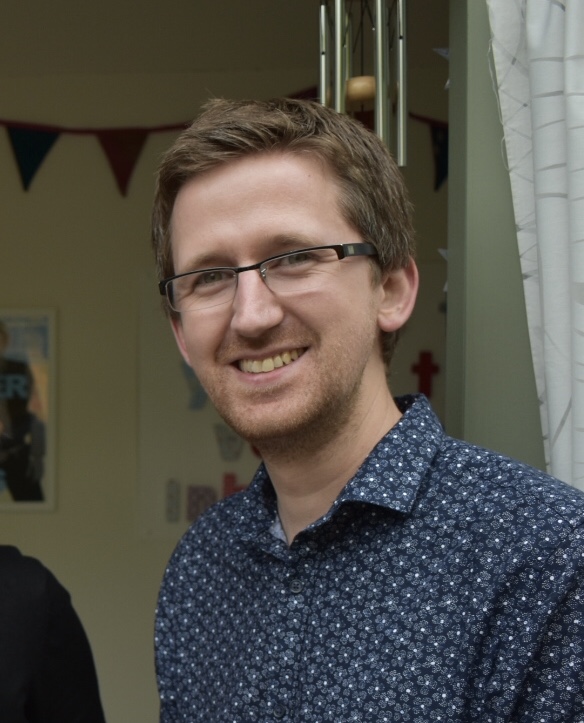
Q & A hosted by
Rob McCann